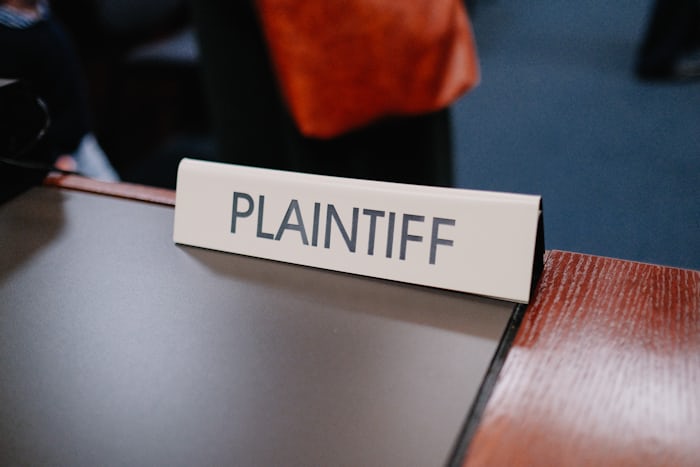Understanding the Gravity of Felonies in the Texas Legal System

Introduction
In the intricate web of the criminal justice system, felonies stand out as the most serious offenses, carrying severe consequences that can alter the course of a person’s life. In Fort Worth, Texas, felonies can lead to imprisonment, with the gravity of the punishment escalating based on the nature and severity of the crime. This article dives into the hierarchy of Texas felony crimes, the potential sentences associated with each level, and the common offenses that fall under this weighty category.
The Spectrum of Felonies in Texas
Texas classifies felonies into several categories, each distinguished by the severity of the offense. Understanding these categories is crucial for anyone navigating the legal landscape or facing a felony charge. The classification is as follows:
- State Jail Felony:
This is the least severe among felonies, punishable by 6 months to 2 years in a state jail.
- 3rd Degree Felony:
A more serious offense, with a potential sentence ranging from 2 to 10 years in the Texas Department of Criminal Justice (TDC).
- 2nd Degree Felony:
Escalating the severity, this category carries a sentence of 2 to 20 years in TDC.
- 1st Degree Felony:
Marking a significant escalation, a 1st degree felony can result in a sentence of 5 to 99 years or life imprisonment in TDC.
- Capital Felony:
This is the most severe, where the punishment can be life imprisonment or even the death penalty.
The possibility of probation exists for many felony offenses, providing a ray of hope for individuals facing these charges.
Common Felony Offenses in Texas
The list of felony offenses in Texas is extensive, covering a broad spectrum of criminal activities. Below are some of the most common felony charges that individuals may find themselves facing:
- Abandoning/Endangering a Child:
A serious offense that involves putting a child at risk, this can lead to a state jail felony.
- Aggravated Assault:
This felony involves causing serious bodily harm or using a deadly weapon during an assault, resulting in significant consequences.
- Aggravated Sexual Assault:
A grave offense that entails sexual assault with elements of violence or coercion, carrying severe penalties.
- Aggravated Robbery:
Robbery with aggravating factors, such as the use of a deadly weapon, can elevate the charge to a higher felony level.
- Assault Bodily Injury Family Member:
Domestic violence-related offenses can lead to a state jail or higher felony charge.
- Burglary of a Habitation:
Illegally entering a residence with the intent to commit a crime can result in felony charges.
- Concealed Handgun Violation:
Violating laws related to concealed carry can lead to serious consequences, including felony charges.
- Counterfeiting:
Forgery and counterfeiting offenses can result in felony charges, reflecting the seriousness of financial crimes.
- Credit Card Abuse:
Illegitimate use of credit cards can lead to felony charges, emphasizing the legal system’s commitment to protecting financial integrity.
- Criminal Mischief:
Damaging property with a value ranging from $1,500 to $100,000 can result in felony charges, with severity increasing based on the extent of damage.
- Criminal Negligent Homicide:
Causing death through criminal negligence is a serious offense, carrying significant legal repercussions.
- Delivery of a Controlled Substance:
Trafficking or distributing controlled substances is a felony with severe penalties, reflecting the societal concern over drug-related crimes.
- Driving While Intoxicated Felony:
Multiple DWI offenses or causing serious harm while driving under the influence can result in felony charges.
- Embezzlement:
White-collar crimes, such as embezzlement, can lead to felony charges, highlighting the legal system’s commitment to combating financial fraud.
- Evading Arrest Vehicle:
Attempting to evade law enforcement while driving can result in felony charges, emphasizing the seriousness of fleeing from authorities.
- Forgery:
Falsifying documents or signatures can lead to felony charges, showcasing the legal system’s vigilance against fraudulent activities.
- Indecent Exposure:
Committing lewd acts in public can result in felony charges, particularly if the act involves aggravating factors.
- Indecency with a Child:
Crimes involving indecency with a child carry severe legal consequences, reflecting society’s commitment to protecting vulnerable individuals.
- Injury to a Child/Elderly:
Inflicting harm on a child or elderly person can result in felony charges, emphasizing the legal system’s dedication to safeguarding vulnerable populations.
- Intoxication Assault/Manslaughter/Murder:
Offenses involving intoxication leading to various degrees of harm or death carry severe felony charges, reflecting the societal condemnation of such actions.
- Possession of a Controlled Substance/Prescription by Fraud:
Illegitimate possession or acquisition of controlled substances leads to felony charges, underscoring the legal system’s stance against drug-related crimes.
- Robbery:
Stealing through force or threat can result in felony charges, emphasizing the gravity of crimes against property and personal safety.
- Sexual Assault/Sexual Assault of a Child under 17:
Sex crimes carry severe legal consequences, with society prioritizing the protection of individuals from such heinous acts.
- Theft:
Stealing property valued between $1,500 to $100,000 can lead to felony charges, with severity escalating based on the value of the stolen items.
Conclusion
In the intricate tapestry of Texas criminal law, felonies stand as the most serious offenses, demanding a nuanced understanding of their classifications and implications. From state jail felonies to capital felonies, the legal consequences are substantial, impacting individuals’ lives in profound ways. The list of common felony offenses underscores the broad range of actions that can lead to severe legal repercussions.
Navigating the complexities of the legal system when facing felony charges requires the expertise of an experienced felony criminal defense lawyer, a crucial ally in safeguarding one’s rights, freedom, and future. As the legal landscape evolves, a comprehensive understanding of felony charges remains essential for individuals seeking justice and protection in the face of serious criminal allegations.



